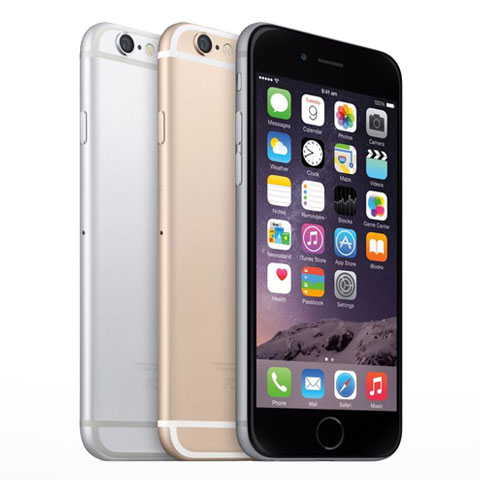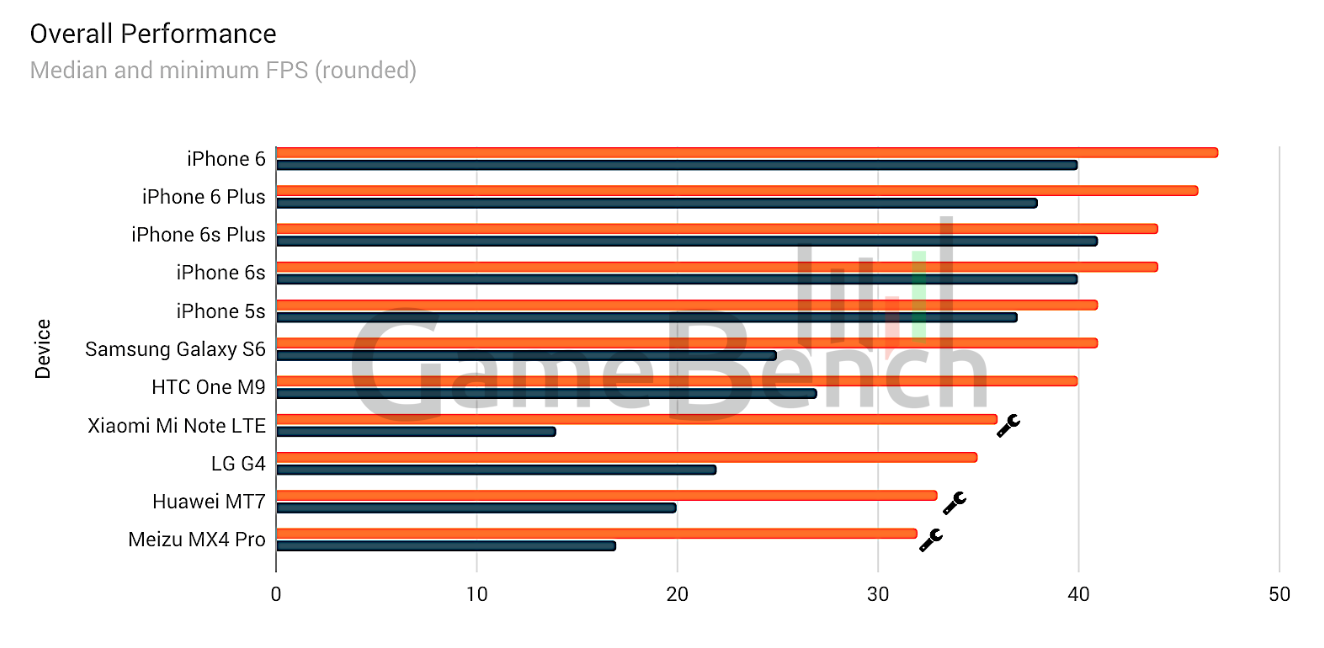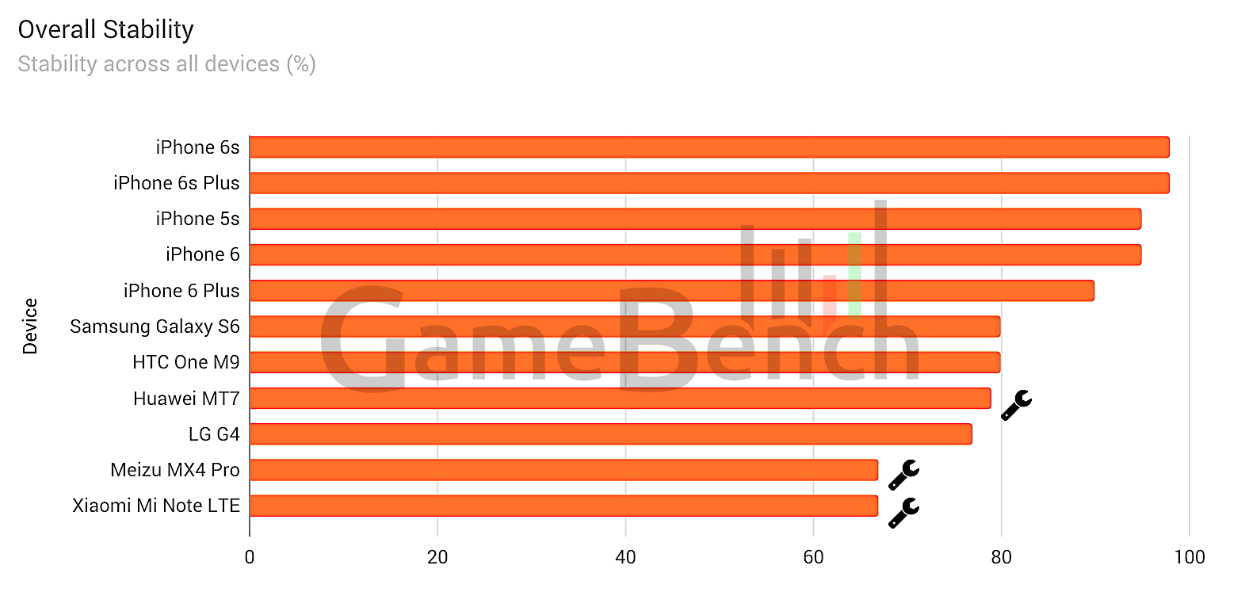
GameBench vergelijkt iPhones en Android telefoons
Je hebt het al vaker op MacFreak kunnen lezen, de chips die Apple zelf ontwikkelt voor
de iPhone zorgen voor een almaar groeiende voorsprong in snelheid op de andere telefoons op de markt.
Dat is natuurlijk prettig in het dagelijks gebruik, niemand heeft graag een interface die blijft hangen of een telefoon waar je steeds op moet wachten. Maar het wordt pas echt belangrijk bij gaming, want daar merk je het verschil tussen een goed presterende telefoon of eentje die een game eigenlijk niet aankan de hele tijd.
Als je wilt weten welke telefoon het beste is voor gaming, dan is het antwoord dat uit
dit onderzoek naar voren komt erg duidelijk: dat is een iPhone. Want plaats één tot en met vijf zijn allemaal voor een iPhone, zowel wat betreft de prestaties als de stabiliteit.

GameBench vergelijkt iPhones en Android telefoons

GameBench vergelijkt iPhones en Android telefoons
(klik op de plaatjes voor een grotere versie)
Het valt meteen op dat in de eerste grafiek de iPhone 6 bovenaan staat, dus nog boven de iPhone 6s en 6s Plus. GameBench heeft daar een verklaring voor, en uiteindelijk is de 6s en 6s Plus toch sneller.
As you can see, the iPhone 6s and 6s don't much improve median frame rates versus Apple's previous generation. This is because frame rates in iOS games tend to be carefully optimised by developers, such that they stick to either 30fps or 60fps on all current iPhones going back to the 5s and even further. (30fps is a wise choice for certain genres of game, whereas 60fps is often used in games that require maximum fluidity, such as first-person shooters and physics-based titles.) Realistically, this means there simply isn't a huge amount of scope for improvement in new iPhones unless developers start to build their games differently (e.g. always running at 60fps) just for most recent models.
In fact, the 6s devices show a slightly a worse median frame rate than the previous generation. This is largely due to the distorting affect of one game, Lara Croft: GO, which is capped at 30fps on the 6s and 6s Plus, and yet is somehow allowed to run at 60fps on last year's devices. But this is a freak result and overall we don't think the variation in median fps is significant across any of the iPhones -- they all perform extremely well.
On the other hand, the 6s generation does show significant progress in our secondary metrics, with higher minimum frame rates (i.e. less severe bottlenecks) and superior stability. In particualar, the 6s Plus compensates for some of the slow-downs we've observed on the original 6 Plus when playing graphically intensive titles such as Unkilled and Hitman: Sniper.
Verder valt op dat bij de stabiliteit de iPhone 5s boven de 6 Plus uitkomt, de reden daarvoor hebben we niet in het onderzoek terug kunnen vinden.
Wil je een Android telefoon kopen en vind je gaming toch belangrijk, dan is de Samsung Galaxy S6 eigenlijk de enige optie, en moet je de Chinese telefoons al helemaal links laten liggen. Maar die telefoons worden waarschijnlijk meestal vooral gekocht vanwege de lagere prijs, en niet om hoe games er op draaien.
Chinese Android
The Chinese devices in our sample suffer quite badly from compatibility problems with our sample of games. This is to be expected, since there's not much commercial pressure on Chinese manufacturers to support Google Play Store games, or on Play Store developers to support Chinese phones. However, even on games where there were no compatibility issues, performance was far below that of the Galaxy S6 and HTC One M9, which just goes to show that raw hardware specs aren't everything and optimisation between software and hardware is critical.
Extremes: LG G4 vs. Galaxy S6
The LG G4 has no compatibility issues, but its performance still puts it amidst the Chinese devices towards the bottom of the ranking. This corroborates previous tests we'd done on this phone using a different sample of games, which also showed poor performance.
The Samsung Galaxy S6 was the only Android device to deliver acceptable performance (above 25fps) across all games in our sample, which means that the it remains the best Android phone for gaming that we've tested so far.